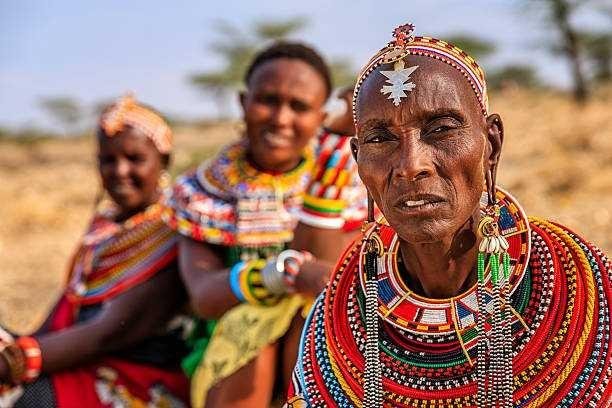Africa, The Garden of Eden

Africa is the world's second largest and second most-populous continent. Africa's average population is the youngest amongst all the continents.
African culture, the “self” is not separate from the world, it is united and intermingled with the natural and social environment.
It is through relations with one’s community and surroundings that an individual becomes a person of volition, whose actions and decisions affect the entire group rather than just oneself.
Throughout Africa, the people speak a variety of languages, practice numerous religions and reside in various types of dwellings.
African arts and craft include sculpture, weaving, beading, painting, pottery, jewellery, headgear and dress. Art from particular regions have distinct characteristics depending on beliefs, values and customs, but common themes found in art include women, couples, children, animals, man with a weapon, or a combination of these. Masks are usually a representation of religious and spiritual beliefs. They are used for traditional ceremonies to honour deities or ancestors.
The environment plays a huge part in what kinds of foods are consumed in different parts of the African continent. Most cuisines include fruit, grain, vegetables, milk and meat products. Quite a number of cultural groups have very similar foods in their cuisines. For example, a very common maize/corn-based dish is pap, also named ugali, sadza, nsima, nchima, chima, poshto, tuozafi, ubgali, bugali, sokoro, sokora, depending on which part of the continent you are eating it.
The type of clothing worn across Africa varies from north to south, and by religious beliefs and traditional customs. Some cultures wear colourful attire, while others wear less colour but include shiny threads in their dressing with minimal jewellery.
To protect their skin from the sun, the Himba people of northern Namibia cover themselves with a mixture of red soil and milk fat, and so they appear to have reddish skin. The otjize mixture is considered to be a beauty cosmetic. They also use wood ash for cleansing the hair because water is scarce.
In the Bemba culture of Zambia, marriage starts with a class called Bana Chimbusa, a secret counselling session for the bride. The class is followed by Chilanga Mulilo, where the bride’s family takes different family dishes and presents them to the groom’s family, giving a symbolic preview of what the groom will be eating when married. Nights before the wedding are filled with a lot of dance parties, a good warmup for the ceremony, or the Ama Shikulo, an official merging of the two families where people go up and give advice and best wishes to the couple.
The Swahili wedding involves a separation between the men and the women. While the bride attends the Henna party the night before the wedding, the men do the Kirumbizi, a fighting dance usually performed to the music of drums and a flute. This is followed by the Nikah, the vows ceremony, after which the groom gets invited to a luncheon called the Walima. The wedding climaxes as the groom picks up his wife in a dance and music-filled procession as they head to their new home.
IF YOU LIKE MY POST PLEASE UPVOTE AND COMMENT
FOLLOW ME ON STEEMIT @imtydviperz
Hi! I am a robot. I just upvoted you! I found similar content that readers might be interested in:
https://www.victoriafalls-guide.net/african-culture.html
Ciertamente es África el origen de todo y siendo así es en África que se ubica el Edén!